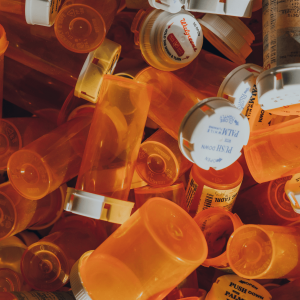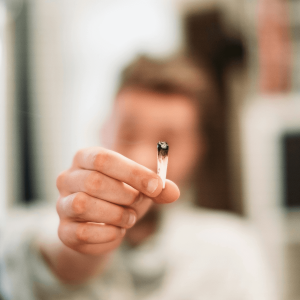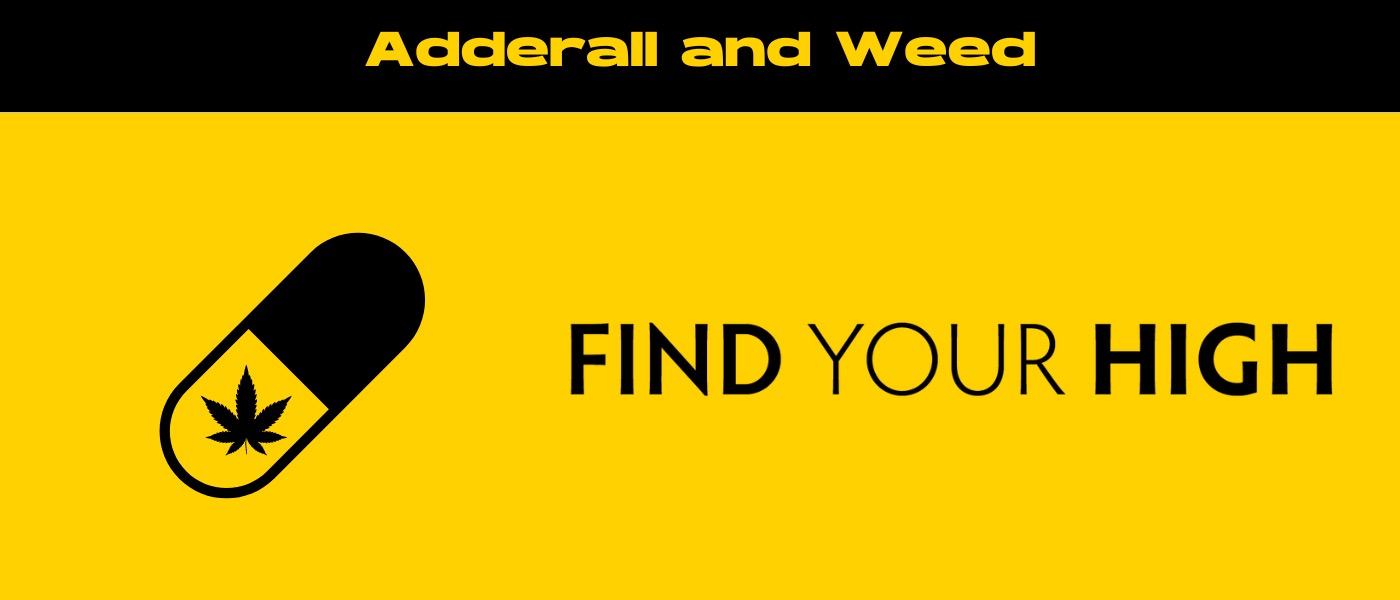Is it safe to combine Adderall and weed?
For those not in the know, Adderall is the go-to prescription for boosting attention spans, kind of like giving your brain a turbo boost on an otherwise sleepy afternoon. It’s often used by those who need that extra push across the finish line, such as those with ADHD symptoms.
On the flip side, we have weed, the herb famed for its chill highs and ability to turn a regular couch into the most comfortable place on earth. But what happens when these two get together? Is it a match made in cerebral heaven or a recipe for disaster?
In this blog, we’ll dive into the nitty-gritty of both Adderall and weed. We’ll explore the science behind how these substances interact, the potential benefits and risks, and what the experts have to say on the matter. Let’s begin!
The Basics of Adderall
Adderall is a popular prescription medication, specifically tailored to help individuals manage attention deficit hyperactivity disorder (ADHD) and, occasionally, narcolepsy.
Composed of amphetamine salts, Adderall gears up the brain by increasing dopamine and norepinephrine neurotransmitters, which help heighten alertness, focus, and energy levels. Imagine it as the brain’s equivalent of a double espresso shot, but considerably more tuned for medical needs.
However, with great power comes great responsibility—or in Adderall’s case, great potential side effects. Heart palpitations, insomnia, appetite suppression, and the risk of addiction are just a few of the risks waiting in the wings if Adderall is misused or overindulged.
While it’s a godsend for many prescribed patients, recreational use or incorrect dosages can steer a person’s dopamine-driven ship into turbulent waters.

Understanding Weed (Cannabis)
Weed, pot, mary jane—whatever you call it, cannabis has secured itself a cushy spot in the cultural zeitgeist. Available in a variety of strains such as the energetic sativa or the relaxing indica, consumers can opt for different highs to match their vibes.
Whether it’s smoked, vaped, ingested as edibles, or brewed into teas, the versatility in consumption methods is as varied as the effects it can have on the human brain. Typically, the presence of THC, the compound responsible for the psychoactive kick, alters your brain’s natural processing, which may result in heightened sensory perception, altered judgment, and the notorious case of the munchies.
While the legal status of weed is a kaleidoscope of patchwork laws across the globe—from fully illegal to game-on recreational use—it’s also surrounded by cultural perceptions that range from a harmless hobby to a dangerous gateway drug. As this debate rolls on, cannabis continues to leave its leafy imprint on the worlds of both medicine and merriment.
Mixing Adderall and Weed: What Happens?
When Adderall meets weed, let’s just say it’s not the typical rom-com type of chemistry. Anecdotal experiences from users often describe the combination as a paradoxical ride, blending the hyper-focus of Adderall with the easygoing nature of weed. For some, it’s like sipping coffee and tequila at the same time—a mixed signal to the brain, leading to unpredictable outcomes. Reports range from calming balance to heightened anxiety, leaving many questioning whether it’s truly a match or a mishap.
Medically speaking, potential interactions can stem from their opposing impacts on the central nervous system. Adderall, a stimulant, revs up your engines, while weed, with its sedative-like properties, can signal the brakes.
The potential benefits of mixing include possibly reducing Adderall-induced anxiety with the calming influence of cannabis, but these claims live more in internet whispers than scientific backing. On the risk side, the duo might create a mental tug-of-war fostering anxiety, paranoia, and even cognitive dissonance. Plus, for those with a history of substance abuse, the mixture could lead to addiction or drug abuse withdrawal symptoms.
It’s advisable for anyone, especially those with a history of mental health issues, considering this combination to approach with caution and consult a healthcare provider, as navigating these two substances is essentially steering a ship through uncharted waters.

Scientific Perspectives and Research
From the scientists’ viewpoint, the plot of Adderall and weed’s relationship remains largely unwritten. Current research ventures into individual effects rather than their mingle, showing a visible gap in comprehensive studies devoted to understanding their combined impact.
Few studies have scratched the surface, inching towards the understanding of how cannabis can potentially alleviate some side effects of Adderall, yet substantial evidence remains elusive. Scientists underscore a warrant for more structured studies to pin down outcomes with precision.
Intriguingly, many researchers express caution against mixing, noting various physiological mechanisms at play that remain unexplored. They highlight the uncertainty surrounding long-term effects, given the disparate nature of the substances.
As the scientific community rolls up its sleeves, the consensus seems to call for deeper exploration, well-documented trials, and a clearer narrative. Until such ambitious endeavors hit the scientific journals, the advice remains to keep curiosity tempered with caution, as the current landscape is more hypothetically painted than factual.
Legal and Social Implications
Navigating the legal landscape of combining Adderall and weed is akin to walking a tightrope. Adderall, a prescription medication, demands a valid prescription for legal use (otherwise it is an illicit drug), while cannabis laws vary, swinging from legal to illegal, depending on your geographical coordinates.
Mixing the two without medical guidance is not only a potential health gamble but could also land someone in legal hot water, particularly in areas where marijuana use remains prohibited.
Socially, the stigma surrounding this duo is pervasive. While cannabis has gained some cultural acceptance, pairing it with a prescription stimulant can invoke negative perceptions, seen by some as recklessly playing chemist.
Practically, users need to weigh the increased risk and benefits, considering factors like legal ramifications, personal health, and societal judgments. If the choice to mix is made, consulting with medical professionals and reviewing local laws should be the first steps.

Adderall and Weed: Conclusion and Final Thoughts
In wrapping up this exploration of mixing Adderall and weed, it’s important to acknowledge both the anecdotal and scientific perspectives. While some users report a blend of focus and relaxation, others face heightened anxiety and a cognitive tug-of-war.
The research community calls for more structured studies to fully understand the combined effects, as current evidence is scarce.
Navigating this mix demands caution, especially given legal and social implications. Ultimately, the best approach rests on informed decisions, emphasizing the importance of consulting healthcare professionals to craft personalized, safe, and well-guided experiences.
And finally, if you or somebody you know is experiencing substance abuse disorder, we highly encourage you to seek substance abuse treatment. However, this blog is purely for educational purposes and should not be treated as medical advice.
Frequently Asked Questions
1. Can I smoke weed while on ADHD medication?
Mixing weed with ADHD medication is like tuning a symphony with a drummer on caffeine and a flutist on sedatives—things might not blend as harmoniously as you’d hope. While some folks claim it mellows them out, helping counteract the jittery effects of ADHD meds, this combo is not officially recommended by healthcare professionals. It’s like a culinary experiment—approach with caution and always consult your doctor before adding this to your life recipe.
2. What kind of weed can you smoke with ADHD?
For those curious about incorporating cannabis into their ADHD management, it’s crucial to remember there’s no one-size-fits-all strain. While some recommend high-CBD strains reputed for calming effects, others might find the focus-enhancing Sativa strains beneficial. However, these anecdotes lack robust scientific backing. As tempting as it is to play herbal scientist, the safer route involves consulting with a healthcare provider or a cannabis specialist who can help guide your choices.
3. Does weed interact with medications?
Weed is like that unexpected guest at the party who can either liven things up or bring the whole vibe down. It can interact with various medications, potentially altering their effects. This could either amplify side effects or diminish the medication’s efficacy. If you’re taking prescribed medication, it’s important to have a chit-chat with your doctor about your herbal aspirations to avoid potential pitfalls.
4. What does Adderall do with alcohol?
Mixing Adderall with alcohol is like trying to party with both speed and brakes on—it stretches your body’s limits. Adderall, a stimulant, might mask the depressant effects of alcohol, leading you to feel less intoxicated than you actually are, and it’s easy to drink more than intended. This misjudgment can result in risky behavior or health issues like heart problems. As much as that cocktail might seem like a good idea, it’s wise to keep these two in separate venues and steer clear of combining them.
5. Is an Adderall overdose possible?
Absolutely, an Adderall overdose is not just possible—it’s actually more common than you’d think, especially if the recommended doses decide to evade your memory. This little orange pill isn’t just about jazzing up your focus levels; when taken in large amounts, it can throw your body into overdrive faster than a caffeinated squirrel on a sugar binge. Symptoms of an overdose can include rapid heart rate, hypertension, confusion, and in extreme cases, it can even lead to severe issues like heart attacks or seizures. So, while it might be tempting to think more equals better focus, it’s best to keep your doses precisely where your doc prescribed them. Remember, your body isn’t a blackjack table—you don’t want to test how far you can push your luck!

 Rewards
Rewards




